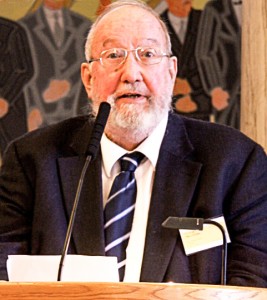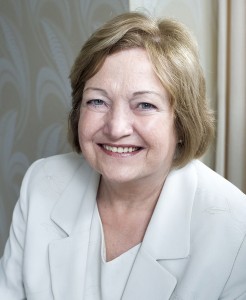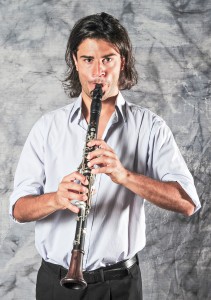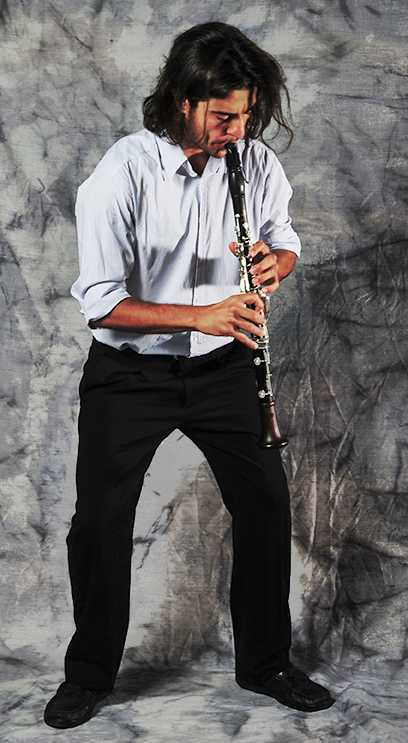Archive for the ‘Culture’ Category
Review of “The Need for a New Economic System”
Review of John Avery’s book by Dorothy Guyot
A Scientist Presses for Action on Many Fronts: A review of the book
The Need for a New Economic System
By John Scales Avery
Selected Works Volume 1, 291 pages
Irene Publishing
Sparsnäs, Sweden 2015
The Need for a New Economic System by John Scales Avery is an important book for everyone concerned over the future of humanity. The urgent voice of the book stems from Dr. Avery’s seeing the discontinuity between the loving care that people bestow on their children and their failure to reduce the harm to their children from a destructive economic system, climate change, resource depletion, and war.
This book of advocacy demonstrates the need for solutions to problems created under the present economic system. Political-economic analyses of the causes of the problems and of solutions are outside of the scope of the book. Scattered through the book are a few general policy suggestions. At the center is Avery’s assessment sector by sector of the critical problems that must be solved to avert disasters.
The book first demonstrates the impossibility of sustaining growth economies on our finite planet. The central three chapters analyze the damage from climate change and war. Globalization, population growth, and the food crisis are the last problems Avery analyzes.
He builds toward his conclusions by sketching the nineteenth century cooperative movement and Gandhian economics. The concluding chapter revisits the problems to advocate change.
The premise of the book is that when people face up to the extent and nature of world problems, people can act creatively and effectively.
John Avery is thinker and writer. Read the rest of this entry »
John Avery’s CV
John Scales Avery
John Scales Avery received a B.Sc. in theoretical physics from MIT and an M.Sc. from the University of Chicago. He later studied theoretical chemistry at the University of London, and was awarded a Ph.D. there in 1965.
He is now Lektor Emeritus, Associate Professor, at the Department of Chemistry, University of Copenhagen.
Fellowships, memberships in societies
Since 1990 he has been the Contact Person in Denmark for Pugwash Conferences on Science and World Affairs. Member of the Danish Peace Commission of 1998. Technical Advisor, World Health Organization, Regional Office for Europe (1988- 1997). Chairman of the Danish Peace Academy, April 2004-.
You’ll find a lot about this eminent scholar at Wikipedia. Avery is also a leading peace researcher and activist – “Since 1990, Avery has been the Contact Person for Denmark the Pugwash Conferences on Science and World Affairs. In 1995, Avery was part of a group that shared in the Nobel Peace Prize for their work in the 1990s in organizing the Pugwash Conferences on Science and World Affairs.
In 1998, Avery was elected to the Danish Peace Commission. During the years 1988-97, Avery was the Technical Advisor at the World Health Organization, Regional Office for Europe. In 2004, Avery became the Chairman of the Danish Peace Academy.
In his usual humble and plain style John tells the story of his life – his personal life, his scholarly life and his peace life – here.
Publications
Dr. Avery seems to have ben writing day and night throughout his life – here is his amazing list of books, chapters and articles on world affairs.
In early 2016, Irene Publishing – run by TFF Associates Jørgen Johansen and Majken Jul Sørensen – published Avery’s Collected Essays as well as The Need For A New Economic System.
John joined TFF as TFF Associate in March 2016.
Remembering the 1916 Rising
By Mairead Maguire
Nobel Peace Laureate, Co-Founder Peace People, Ireland and TFF Associate
When the President of Ireland, Michael D. Higgins, the Irish Military, Government Members, and many Irish people gathered in Dublin, on Easter Sunday 27th March, 2016 to remember the Easter Rising of l9l6, some of his challenging words were addressed to the young generation.
He encouraged them ‘to imagine and to dream‘ and he said ‘we wish them well as they make music and continue to dream’. The Leaders of l9l6 had political hopes and dreams. President Higgins said ‘For the leaders of l9l6, their political hopes and aspirations for what a free Irish Republic might be, were linked to a rich Irish culture which they cherished and promoted.
Within that vision, their ancient Irish language and culture, informed by our history and migration, was central to everything for which they hoped and fought.’
I believe the men of l9l6 had a democratic right to their dreams of Irish self-determination and to work for Irish Freedom, but the violent method by which they fought for freedom was ethically and morally wrong. Read the rest of this entry »
Experiencing aesthetically the concept of peace
By Elías Abraham Foscolo
Aesthetics – being shaped by the senses – means art. And vice versa. Beauty is the main factor to recognize as the aesthetical component within an artistic experience. Whichever may be the artistic environment experienced – music, dance, theatre, film, poetry – the concept of the aesthetics is associated to the subjective capacity of experiencing the outside world and the way that impacts inside the person.
Indeed, it is an experimental process aiming to resonate with the beauty of the universe – word beauty here as metaphoric approach of peace; hence a type of beauty which aesthetically aims to be eternal, pure and human. Following this idea, an aesthetic experience of beauty is related to identifying an inner peace and such a process is an authentic artistic desire to be touched by the act of love.
Actually that is what empowers and makes the person aware of who she or he truly is; and in consequence allows the unfolding of his/her own peace and artistic inner potential.
For me the aesthetics of the art is a synonym of the aesthetics of peace.
John Paul Lederach makes explicit this: [How do we practice the aesthetics of peacebuilding? Like art itself, there is no single technique by which it can be pursued and at the same time it cannot be created without discipline].
Lederach connects the aesthetics of peacebuilding with the aesthetics of the arts Read the rest of this entry »
How ought we treat each other?
By Johan Galtung
Upon receiving the Gandhi-King-Ikeda Community Builder Prize
Atlanta, 31 Mar 2016
Dear President, dear Dean of Morehouse College, Ladies and Gentlemen,
I am deeply honored by the prize from a college in Georgia, in the US South, that has been and is a beacon in the struggle from dominion to dignity in race relations. The civil rights movement is an American Revolution, like the feminist movement it inspired–aiming at parity and dignity for all. To refuse sharing the spoils of exploiting Reds and Blacks and poor Whites with London was far from a revolution.
This college shaped Dr Martin Luther King Jr. I had the honor of meeting him twice here in Atlanta in 1960–working on desegregation without violence in Charlottesville, VA–and in 1964 in Oslo when he received the Nobel Peace Prize. This College made him use Gandhi’s clinging to truth through nonviolent struggle, satyagraha, lifting 20 million Blacks into dignity. There is a backlash: Blacks are again shot at, and used as slave labor in prisons. The struggle continues.
Building communities. There are at least two of them, the community of people, and the community of states. I will deal with both and share with you in this speech the basic ideas of TRANSCEND mediation – an NGO of more than 500 invited members, comfortable with our mantra, “Peace by Peaceful Means”. Transcend means going beyond.
Let us approach answering the question through some words on how we ought not treat each other.
It is all in our thought habits, the deep culture of our thinking. In the West we think in simple dichotomies, like positive/negative, good/bad, even evil. Either one or the other, not in-between, neither-nor, both-and. And we very easily fall into the trap of seeing ourselves as only good, and someone else as only bad, steered by God or Satan. The road to narcissism, self-love and paranoia, seeing threats everywhere, is short. Victory! not solution.
AND Narcissism + Paranoia = Psychosis, the psychiatric diagnosis.
To escape from this thought habit use ancient Chinese habits. Yin/Yang. They also think positive/negative, good/bad; but add more levels, like the positive and negative in the positive and negative, the good and bad in the good and bad. That opens for identifying the negative in Self and the positive in Other; for positive-peaceful, not negative-violent relations. Not either-or; but both-and, neither-nor.
The TRANSCEND formula: focus on the positive, good in everybody including yourself; but keep the negative, bad in the back of the mind to improve it and as possible danger, to Self and-or Other.
Then create projects linking good with good; first as vision, then reality. Read the rest of this entry »
TFF PressInfo # 369 – A Sunni-Salafist-Zionist Coalition Changing Middle East?
By Jan Oberg
Please try Google “Gulf states want nuclear weapons against Iran – Israel “ and only one Western mainstream media will appear, an excellent article by The Telegraph’s Raf Sanchez in Jerusalem.
The only other media carrying the story is Russia Today and Vigilant Citizen and MintPress News also carries the story and offers a wider background
What is this about?A new coalition?
So the usual Western media filter, meaning it must be interesting. And it is a quite sensational story: Saudi Arabia and Israel are up to a nuclear mischief against a country that has just been prevented from acquiring nuclear weapons by means of a huge legally binding document, UN Security Council endorsement and extremely tight monitoring mechanism. What’s it about?
It’s about Israel’s defence minister Moshe Ya’alon saying in public at the recent Munich conference that Arab states are “not willing to sit quietly with Iran on the brink of a nuclear bomb”.
He thinks that Iran was liable to break the agreement as their economic situation improves with the lifting of international sanctions. Ya’alon is quoted as saying that “I speak about the Gulf states and North African states too…For them, Iran and the Muslim Brotherhood are the enemy. Iran is the bad guy for us and for the Sunni regimes. They are not shaking hands [with Israelis] in public, but we meet in closed rooms.”
So not only Jordan’s monarchy and Egypt’s dictatorship but also Gulf and North African states: A coalition lead by Saudi Arabia and Israel – Israel as the only nuclear weapons power in the region and Saudi Arabia as the most likely next nuclear weapons state.
For much too long the world’s attention has been on Iran’s imagined nuclear weapons, not on the dozens or hundreds real nukes that Israel possesses as a non-member of which is the Non-Proliferation Treaty (NPT).
One can say that Israel and Saudi Arabia lost the political battle against the nuclear deal with Iran concluded with the five permanent UNSC members and Germany last year – and now will do their utmost to use Iran’s non-nuclear weapons status as a pretext for others going nuclear against, predominantly, Iran.
Propaganda hysteria dominates in an age where knowledge plays a diminishing role
The problem for them, however, is that Iran will be difficult to sell as a real threat – but we live of course in Read the rest of this entry »
Iranian elections: Another milestone in reformist advance
By Farhang Jahanpour
Since the latest Iranian elections held on 26th February 2016 for the 290-seat parliament (Majles) and the 88-member Assembly of Experts there have been many negative comments about the election results from the usual suspects.
Some people who are fundamentally hostile to Iran, criticize everything that Iran does, regardless of outcome. When the leading Iranian reformist candidate Mohammad Khatami won a landslide election in 1997 and initiated a series of important reforms at home and advocated a dialog of civilizations and even made a remarkable offer to the United States to reach a grand bargain over all the issues of contention, some pro-Israeli groups dismissed him, saying that he had no power.
However, when President Mahmud Ahmadinezhad made a number of outrageous comments, not only were his statements taken out of context and exaggerated, it was said that he posed an existential threat to Israel and the West.
Some people are at least honest about their real motives. During the controversial election in 2009 when Ahmadinezhad was declared the winner over the reformist candidate Mir-Hoseyn Moussavi, some American neoconservatives and Israeli commentators openly said that they preferred Ahmadinezhad because they could demonize him more easily.
“Just because Moussavi is called a moderate or a reformist doesn’t mean he’s a nice guy. After all he was approved by the Islamic leadership,” said Ephraim Inbar, director of the Begin Sadat Center at Bar Ilan University. “If we have Ahmadinejad, we know where we stand. If we have Moussavi we have a serpent with a nice image.” The then Mossad Chief, Meir Dagan, told a panel of Israeli lawmakers: “If the reformist candidate Moussavi had won, Israel would have had a more serious problem, because it would need to explain to the world the danger of the Iranian threat.”
Recently, the staunchly anti-Iranian lobby, The Israel Project (TIP), produced a promotional video showing the leader of the terrorist group, the Mojahedin-e Khalq, denouncing the latest Iranian elections. This is despite the fact that before some right-wing pro-Israeli groups had decided to promote this terrorist group as a popular opposition group, in 2011 TIP director Josh Block had described the group as a terrorist organization. (1) Nevertheless, now his organization calls upon the same group to denounce the Iranian elections.
However, despite all this negative propaganda, the results of the latest Iranian elections exceeded all expectations. The elections set another milestone in the desire of the Iranian people for change and reform following the 2013 presidential election that resulted in the victory of the centrist candidate Hassan Rouhani.
Ever since the victory of the Islamic revolution, the government has held flawed, but competitive and relatively free and fair elections. In order to appreciate the significance of the election results, we should look at some of the obstacles that had been placed on the path of the reformists and moderates.
The right-wing Guardian Council, formed by six clerics appointed by Iran’s Supreme Leader Ayatollah Ali Khamenei and six appointed by the head of the judiciary, who is himself appointed by Khamenei, has the job of vetting all the candidates who run for high office in Iran. In the absence of organized political parties, anybody can declare himself or herself a candidate in presidential or parliamentary elections, and normally many unqualified people do so.
Therefore, there is a need for a vetting organization, but the criticism against the Guardian Council is that it does not act in a fair and impartial manner.
During the recent elections, Read the rest of this entry »
TFF PressInfo 359: Why anti-refugee policies in Denmark? Part 3/4
By Jan Oberg
But why?
One can point to many reasons for such a tragic development in an otherwise decent, wealthy and hitherto well-respected country.
• It’s become too easy to go to war. The generation of politicians who might have a sense of war are long gone. If you take property owned by people who have fled thousands of kilometres because their life opportunities have been smashed and who carry just what they could grab in a hurry and carry – you simply have no idea of what life is like in a war zone. Neither do you see any need for advisers.
• Only a small percentage of Danish politicians have any international experience, no special competence, in international affairs – in sharp contrast to the 1970s-80s.
• Knowledge, broad civic education and cultured manners have been replaced by marketing consultants, styling experts, and fast politics salesmanship.
• Politics nowadays attracts a different kind of people than before. They fight more for their power positions than for an ideology, values, norms or a vision of a better world – all of which is totally outdated in today’s politics.
• Politics is a job or profession, not a calling based on deepy held individual values and visions about a better society for all.
• Anyone mentioning ethics or existential responsibilities would be ridiculed. And neither do media people raise such dimensions. An expert in ethics is hardly ever invited to the TV debates.
• Since the end of the Cold War, there has been no international balancing factor to take into account – the US/NATO and EU could do virtually what they pleased, riskfree violations of all good norms and international law – and implicit, if not intended, humiliation of Russia.
• The social democratic party developed from a working class solidarity movement to a middle class power elite losing on the way all ideals, ideology and solidarity with disadvantaged classes domestically and internationally. It lost its narrative and party identity as a social transformation agent for the better sometime in the 1980s. Read the rest of this entry »
Cultures of war, cultures of peace
By Johan Galtung
We have war and peace, theory and practice. And deeper down cultures of war and peace, notions of what the world is or could be. The latter is not necessarily peace, could also mean removing obstacles to war.
Timothy Snyder, “Hitler’s World” (NY Review of Books, 24 Sep 2015) and Greg Grandin, “The Kissinger Effect: The relentless militarism of the national-security state and its perverse justification begin with Henry Kissinger” (The Nation, 28 Sep 2015) are both on that line.
Hitler’s World derives from Darwinist struggle for niches, with survival of the fittest. His niche is not the whole world but what is needed to feed the German people, and here Ukraine plays a major role. The food chain is key to the image, with humans on top, eating animals and plants, but not eaten by them. So also for the human species, divided in races with the Aryan race on top, “fittest” as evidenced by domination all over; never slaves. On top of them are the Germans; their state not an end but the military arm obliged to be strongest.
To Hitler that world is natural, and inherently stable. Values, equality, human rights, equal right to life, Christianity, capitalism, communism, are anti-natural. For Hitler such ideas…
PlayforRights Celebration on International Artists Day
By Elías Abraham-Foscolo with Jan Oberg
We would like to count on your presence as well as people you may know interested in our activities.
PlayforRights Celebration on International Artists Day
PlayforRights organizes this event (see poster below) to raise awareness and consciousness about the following statement: “The arts contribute to the field of human rights by making visible the human dimension”.
Why do we do this in a celebrative way? 25th of October can be seen as any other ordinary day but for members of PlayforRights it is not. This date is very important moment of the year where we all, the civil society, shall meet together and raise awareness about the potential of the art expressions within processes of social change.
For this, we need to recognise that the arts are ways of nurturing love, that art is Read the rest of this entry »







